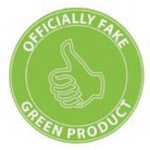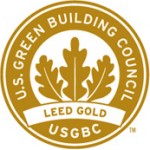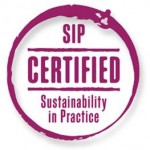Are You Being Greenwashed?
Have you ever felt like you’re not getting the whole story when you’re standing in the grocery store trying to choose between environmentally friendly products? Chances are you were the victim of greenwashing. Many people understand greenwashing to be marketing used to create the misleading perception that a company’s policies or products are environmentally friendly.
A company called TerraChoice Environmental Marketing has taken it one step further and defined the Seven Sins of Greenwashing. It’s a fun way to help consumers understand how to decipher the information we’re getting from products at the grocery store shelf. TerraChoice does independent product testing and certification in association with Underwriters Laboratories – the guys who test electrical cords to make sure they’re safe to put the UL sticker on it.
Additionally, TerraChoice examines products and ensures they meet the environmental requirements for certification. They’ve also done some great research on marketing trends which helps to explain why our heads spin when trying to decipher product claims.
Since 2008, TerraChoice has been surveying retail stores to find products that make green claims and investigate the validity of the claims. Last year they investigated 5,296 products across a variety of categories including baby toys, cleaning products and even DIY building materials. Here are a couple of highlights of what they found:
- 73% increase in products making eco claims (2009-2010)
- 20% of products have legitimate eco-labeling (3rd-party certification on package)
- 31% of products have false eco-labeling (bogus logo giving impression of 3rd-party certification)
It turns out very few products actually make false claims — like claiming to be Energy Star when you’re not. The most common Greenwashing Sins are being vague or not providing any proof of claims, or, as TerraChoice puts it:
Sin of No Proof: An environmental claim that cannot be substantiated by easily accessible supporting information or by a reliable third-party certification. Common examples are facial tissues or toilet tissue products that claim various percentages of post-consumer recycled content without providing evidence.
Sin of Vagueness: A claim that is so poorly defined or broad that its real meaning is likely to be misunderstood by the consumer. ‘All-natural’ is an example. Arsenic, uranium, mercury, and formaldehyde are all naturally occurring, and poisonous. ‘All natural’ isn’t necessarily ‘green’.
This research has been helpful to me in investigating and making buying decisions; it can be hard to navigate all the choices we face at the grocery store shelf. I don’t think having to evaluate the legitimacy of eco-claims should be difficult at home or at work. That’s why the sustainably platform at kendall-jackson is based around 3rd-party, independently audited certifications. So far we’ve got a few under our belt; we’re working on several more so you never need to question if we’re the real-deal or not.
Below are some of our third party certifications and tell us your greenwashing stories.







